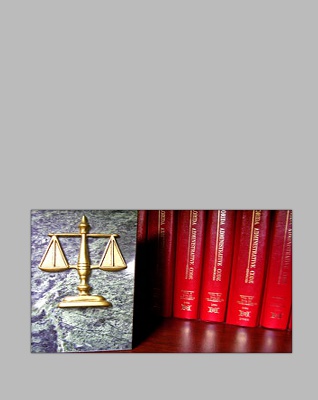











Law Offices of
J. MANUEL ACEVEDO, P.A.
J. MANUEL ACEVEDO, P.A.
Have Questions Regarding
the Florida Divorce Laws?
the Florida Divorce Laws?
Call us!
407-323-4080

Call us!
407-323-4080
Florida Divorce Laws:
The Florida Divorce Case Law
The Florida Divorce Case Law
Lawyer Advertising. Whether you are looking for a Central Florida Family Lawyer, Divorce Attorney, or Child Custody Attorney, the hiring of a lawyer is an important
decision that should not be based solely upon advertisements. Before you decide, ask us to send you free written information about our qualifications and experience.
decision that should not be based solely upon advertisements. Before you decide, ask us to send you free written information about our qualifications and experience.
Florida Divorce Laws:
The Florida Divorce Case Law
The Florida Divorce Case Law
* Divorce & Child Custody
* Visitation / Time Sharing
* Visitation / Time Sharing
There are three major components that make up the Florida Divorce Laws. Those three
components are: (1) the Florida Divorce Statutes; (2) the Florida Family Law Rules of
Procedure; and (3) the Florida Divorce Case Law.
Florida Divorce Laws:
The Florida Divorce Case Law
We can provide you with
confidential family law advice
and legal help regarding:
The Florida Divorce Case Law
We can provide you with
confidential family law advice
and legal help regarding:
The Florida Divorce Laws
The Law Offices of J. Manuel Acevedo, P.A., are located at 116 North Park Avenue in Sanford, Florida, 32771.
Attorney Acevedo is a lawyer admitted to practice law in Florida, has clients from Florida, the United States, and
other countries, and primarily serves Seminole County, Volusia County, Orange County, and Lake County, and the
following cities: Sanford, Longwood, Lake Mary, Heathrow, Altamonte Springs, Casselberry, Oviedo, Goldenrod,
Fern Park, Forest City, Midway, Geneva, Chuluota, Winter Springs, Wekiva Springs, Deland, Deltona,
Orange City, Debary, Lake Helen, Daytona, Deleon Springs, Orlando, Apopka, Maitland, Lockhart,
Azalea Park, Winter Park, Mount Dora, Tavares, and Eustis.
Divorce & Family Law | Florida Divorce Laws | The Florida Divorce Case Law
Attorney Acevedo is a lawyer admitted to practice law in Florida, has clients from Florida, the United States, and
other countries, and primarily serves Seminole County, Volusia County, Orange County, and Lake County, and the
following cities: Sanford, Longwood, Lake Mary, Heathrow, Altamonte Springs, Casselberry, Oviedo, Goldenrod,
Fern Park, Forest City, Midway, Geneva, Chuluota, Winter Springs, Wekiva Springs, Deland, Deltona,
Orange City, Debary, Lake Helen, Daytona, Deleon Springs, Orlando, Apopka, Maitland, Lockhart,
Azalea Park, Winter Park, Mount Dora, Tavares, and Eustis.
Divorce & Family Law | Florida Divorce Laws | The Florida Divorce Case Law
To visit our main website go to:
www.attorney-jmanuelacevedo.com
Copyright © 2011-2014 Law Offices of J. Manuel Acevedo, P.A.
El Abogado Habla Español
* Child Support
* Alimony / Spousal Support
* Alimony / Spousal Support
Bridge the Gap Alimony
Rehabilitative Alimony
Durational Alimony
Permanent Alimony
Rehabilitative Alimony
Durational Alimony
Permanent Alimony
The Florida Divorce Case Law
As you may know, an appeal is a request that a decision be reviewed by a higher authority.
When a person knows or believes that the Florida Divorce Laws have been misapplied to their
particular circumstances and their case has been wrongly decided, the person may file an appeal.
After all the relevant documentation regarding the appeal is filed, Court of Appeals will consider
the arguments raised and will issue a decision that will either affirm or reverse the Trial Court. In
some cases, the Court of Appeals will issue a written opinion that will explain why it is deciding a
certain way. Because these written decisions must be followed by the Trial Courts in the
jurisdiction of the Court of Appeals that issued the decision, they are instructive on how the
Florida Divorce Laws are to be applied in cases that are similar to the case that was appealed.
Therefore, in order to maximize your chances of
a fair result in your divorce in Florida, it is
important that you be familiar with this
component of the Florida Divorce Laws, as well
as the other two components discussed.
Here are the links to the other two components:
Florida Divorce Laws | Florida Divorce Statutes
Florida Divorce Laws | Florida Family Rules
Here are the links to the other two components:
Florida Divorce Laws | Florida Divorce Statutes
Florida Divorce Laws | Florida Family Rules
You should be familiar with each of the above components in order to maximize your
chances of a fair and equitable result in your divorce case. In the previous segment of the
Florida Divorce Laws we discussed the second component, the Florida Family Law Rules
of Procedure. Please consider this three part overview of the Florida Divorce Laws in
determining whether you need a lawyer for your Florida divorce case.
Have Questions Regarding
the Florida Divorce Laws?
the Florida Divorce Laws?
* Child Protective Services
* Termination of Parental Rights
* Termination of Parental Rights
* Mediation & Negotiations
* Division of Property
* Uncontested Divorce
* Division of Property
* Uncontested Divorce
* Do It Yourself Divorce
* Paternity Actions
* Temporary Custody Changes
* Paternity Actions
* Temporary Custody Changes
* Child Custody Modifications
* Child Support Modifications
* Child Support Modifications
Military Personnel
Grandparents / Relatives
Grandparents / Relatives
* Alimony Modifications
* Juvenile Dependency
* Juvenile Dependency
The third component of the Florida Divorce Laws is the Florida Divorce Case Law. The
Florida Divorce Case Law is a term sometimes used to describe the written decisions related to
divorces that are issued by the Courts of Appeals. Through those written decisions, the Courts
of Appeals provide guidance on how the Florida Divorce Statutes and the Florida Family Law
Rules of Procedure are supposed to be interpreted and applied by the Trial Courts.